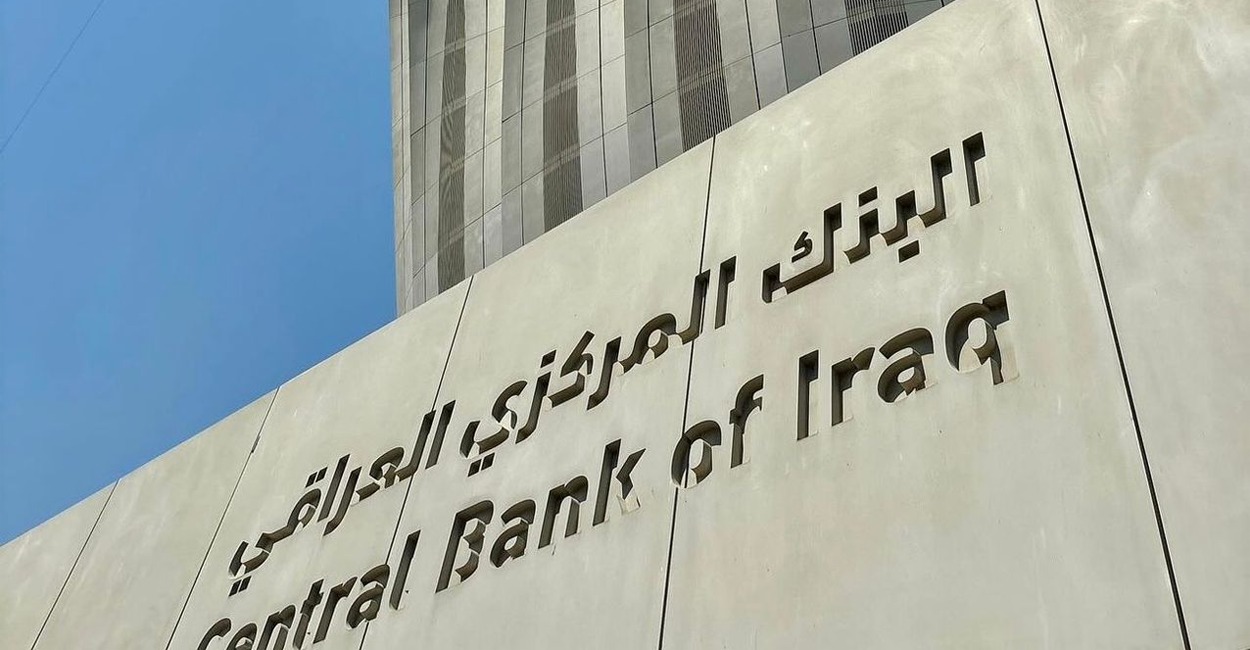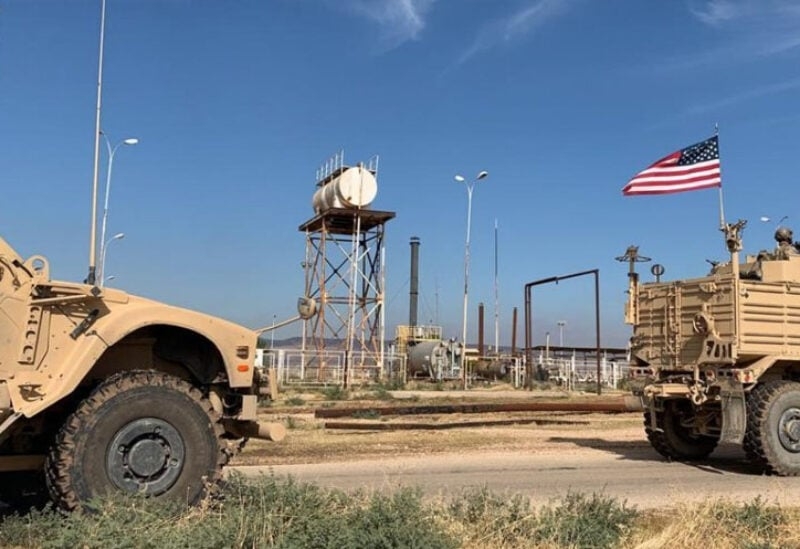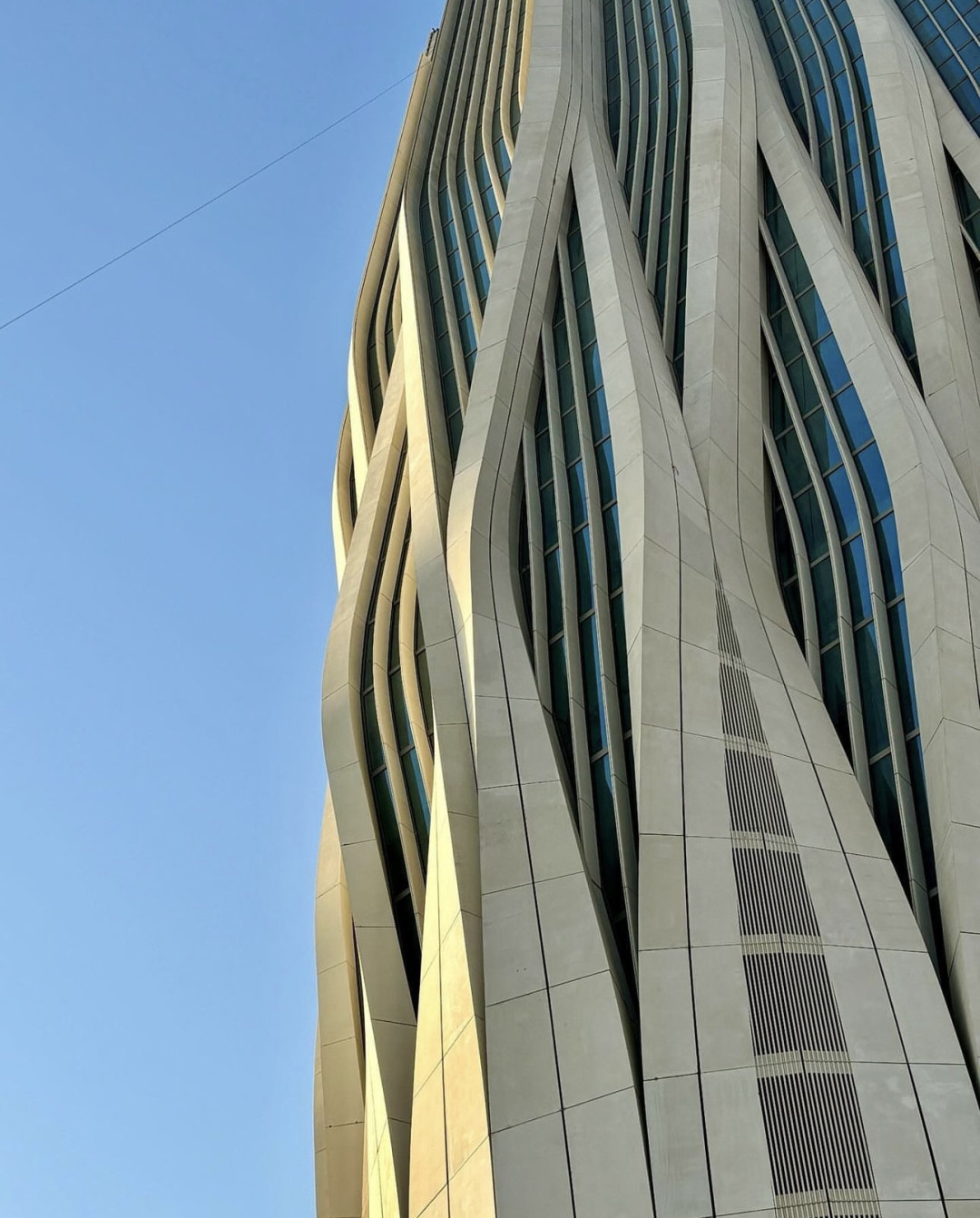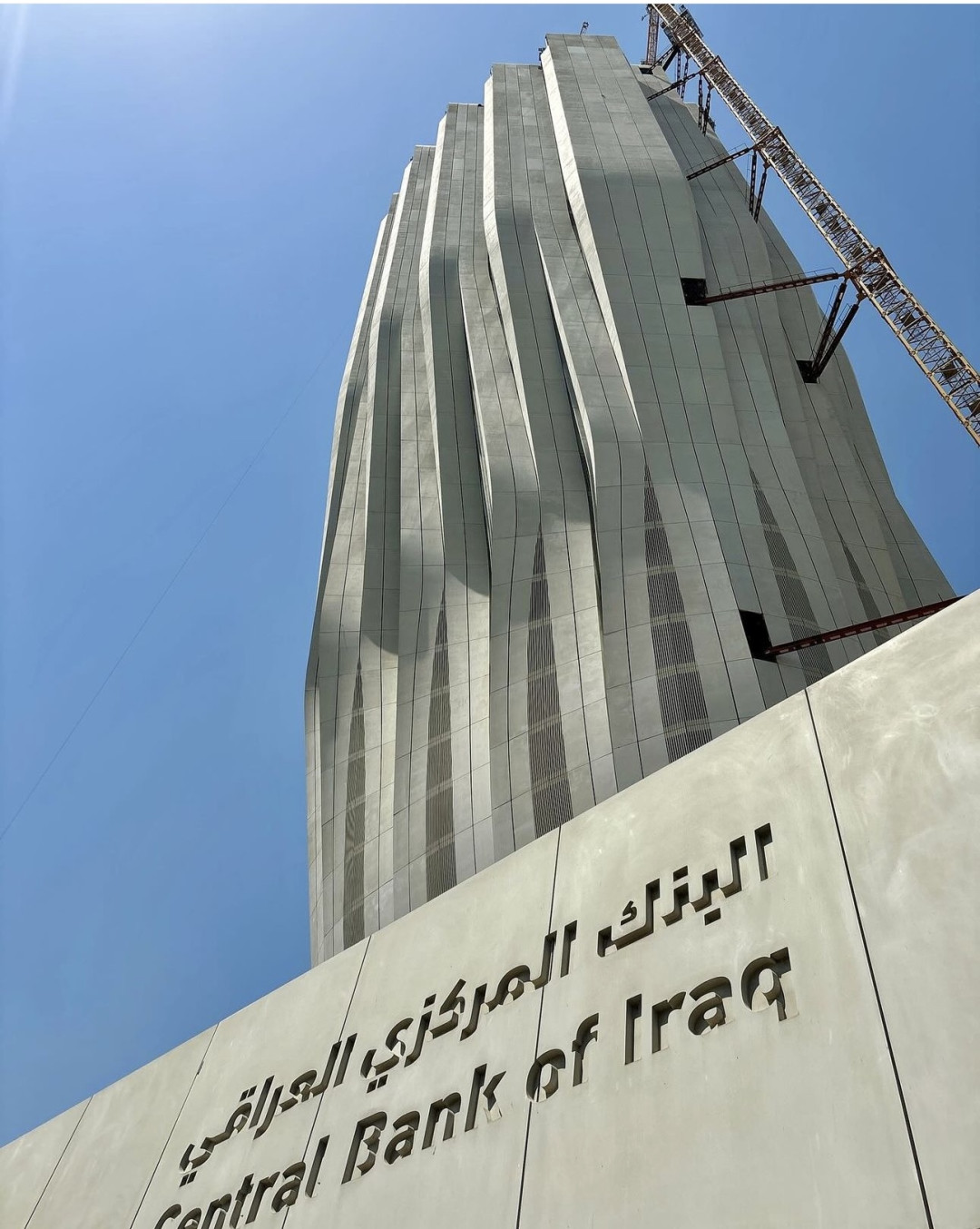Has the spark ignited in the Iraqi dinar and the near-total collapse?

Economic expert Mustafa Hantoush said today, Saturday, that the current thinking about changing monetary policies for the next stage is incorrect, regardless of the people who will be nominated for the position of governor.
The video for this blog post is below here:
Hantoush told the news agency, “Iraq is currently going through a phase of almost complete collapse in monetary policies, which are: “the policy of preserving the national banking system - the policy of international monetary relations - the policy of protecting the local currency against foreign currencies.”
dollar mill
The economic expert continued: “In addition to the policy of activating banking operations and supporting the Iraqi market - the financing policy supporting the Iraqi industrial, agricultural, tourism and other sectors - the policy of the technical legal banking opinion supporting the movement of markets flexibly - the policy of activating the tools of the money market in the stock market - the policy of supporting electronic transactions.” Therefore, the next stage must be to rescue monetary policies through national monetary and banking plans.
Economic data
Globally, the dollar approached its highest level in two weeks against the yen after its largest one-day gains against its major counterparts in four weeks, as strong US economic data eliminated fears of recession.
New procedures
The dollar was particularly strong against the Japanese currency thanks to higher Treasury yields as traders scaled back bets that the Federal Reserve will be forced to take aggressive easing measures next month.
Risk-sensitive currencies such as the pound were strong as an improving economic outlook lifted stocks.
The dollar index, which measures the greenback against six major currencies including the yen, the pound and the euro, was little changed at 103.20 after rising 0.41% overnight, its biggest gain since July 18.
The dollar fell slightly to 149.11 yen, but remained close to yesterday's high of 149.40, a level last seen on Aug. 2.
The Commerce Department said retail sales rose 1.0% last month, beating expectations for a 0.3% gain. Separate figures showed 227,000 Americans filed for unemployment benefits last week, fewer than the 235,000 expected.
Traders are convinced that the Federal Reserve will cut interest rates on September 18, but the size of the cut is being discussed, according to a statement.
The odds are currently at 25% for a large 50 basis point cut, down from 36% the day before, according to CME Group's FedWatch tool.
Low salaries
Surprisingly weak monthly payrolls data at the start of the month has raised the odds of a larger cut to 71%.
Sterling was slightly higher at $1.2859, building on a 0.21% advance overnight. The British currency got additional support from strong GDP figures on Tuesday.
The euro was steady at $1.0973 after falling 0.36 percent in the previous session.
The risk-sensitive Australian dollar was steady at $0.66105 after advancing 0.2 percent the previous day after data showed a much larger-than-expected increase in jobs.
Is it time to remove the zeros?
Yasser Al-Mutawali
There is an economic principle in the free market economy, capitalism, or whatever you call it, to treat the defect or distortion in the economic structure as a result of the shock.
That is, accepting the financial, economic and social effects of this measure in the hope of improving the economic reality.
In order to clarify this principle and analyze its effects as a means of spreading economic culture, we will address the issue of deleting zeros from the currency in order to reduce its effects on the size of the monetary mass and the value of money. The more difficult and complex the solutions to reduce the dollar exchange rate between the official and parallel rates become, the more calls for the necessity of deleting zeros increase, believing that it is one of the solutions.
Here, if the decision is made to remove zeros, this means treating the defect with the shock effect, but we must first present the most prominent advantages and disadvantages of removing zeros and compare them to reach an optimal solution and a sound decision. This is the best way to spread the culture of discrimination among the public, rather than addressing specialists because they are aware of the optimal solution. One of the most prominent advantages of removing zeros is reducing the size of the monetary mass, not its value (simply the number of banknotes used in circulation). This advantage results in the ease of carrying cash amounts and protecting them from theft or damage.
As for the disadvantages, deleting zeros will create countless social problems that we can do without at this stage due to the inability to convince the public to accept the decrease in the size of the monetary mass while acknowledging that the real value of the money is not affected. The issue is related to the mind and the memory’s preservation of large amounts, and then the solution of commercial and personal contracts and agreements creates disagreements and an inability to reach an understanding.
From the above analysis, it is clear that the procedure of deleting zeros is not appropriate at the present time. However, with the use of electronic payment operations, the environment will be mature and acceptable for the idea of implementing the decision to delete zeros, and the process will be automatic without the citizen feeling it. But is it time to issue the decision? We see that it is too early due to the recent introduction of electronic payment technology in commercial, market, official and private transactions. The experience is still limited to absorbing such a transformation, and when the percentage of acceptance and use of electronic payment tools reaches 90 percent of citizens, then the decision to delete zeros can be implemented easily and smoothly. It takes time to spread the culture of electronic payment, and it is required to intensify media and advertising campaigns to focus it in the citizen's memory and accept it. In such a case, the concerned authorities should reduce the costs of using electronic payment and impose strict control over fraud and manipulation, and then expand and diversify electronic payment companies throughout the country. Those concerned should start with state institutions in using electronic payment for all transactions, and then the culture of electronic payment will expand.
Consensus on the acceptability of using electronic payment
The Executive Director of the Iraq Development Fund, Mohammed Al-Najjar, believes that electronic payment has achieved acceptable results in various regions, as electronic services are present in all cities and towns.
He said in a statement to Al Sabah: The great government support for this joint, which will transfer the reality of financial transactions to a new stage, requires all concerned institutions to work on developing their performance and making the services provided rise to the level of international standards in an actual and serious manner.
He pointed out that Iraq's goal is to attract advanced global efforts to the Iraqi work arena alongside the Iraqi effort, and here the paths of financial services must be in continuous development and in harmony with the needs of global companies, since the volume of work in Iraq accommodates our local and international efforts and all of them are anticipating an ideal financial sector.
It is noteworthy that the Governor of the Central Bank of Iraq, Ali Mohsen Al-Alaq, said that the Central Bank of Iraq works side by side with the government program and the Prime Minister’s direction to support electronic payment, as the amounts processed in the national switchboard systems amounted to more than (2) trillion Iraqi dinars in July alone, compared to (800) billion dinars in the same month of 2023, after which it became (1) trillion dinars in January 2024, and government payments witnessed an additional increase, reaching (912) billion Iraqi dinars last July compared to (287) million dinars in the same month of 2023.
He expressed his hope that government institutions would adopt the establishment of units specialised in electronic payment technologies to work on following up and developing this important aspect.
The Executive Director of the Iraqi Private Banks Association, Ali Tariq, stated that the electronic payment paths are in continuous development and proceeding according to the plans drawn up to improve the reality of this important joint, pointing out that the government’s confirmations and the instructions of the Central Bank of Iraq that urge the expansion of the use of electronic payment have led to the improvement of the reality of these transactions, which have been continuously expanding.
Tariq pointed out that citizens have begun to interact with electronic financial transactions in their daily lives after they have experienced ease of performance in a safe manner that guarantees their money and takes it to the right place with ease. The economic benefits of the reality of electronic payment have also become clear, as it makes money move in a safe direction away from the forms of manipulation that may be witnessed when transactions are in cash.
Tariq stressed that the fact that POS points of sale have exceeded the 50,000 barrier indicates the acceptability of electronic payment, and of course this development needs to be reinforced by providing products that are world-class in performance, pointing out that government decisions supporting this trend achieve clear positive results.
He pointed out that all institutions concerned with electronic payment must give great attention to the issue of education and make it one of their priorities, and that there must be a clear role for the media in making all segments of society aware of the reality of electronic payment and the benefits it brings to the beneficiary and how it is adopted globally and protects citizens’ money, as well as achieving benefits for the user.
Tariq had indicated that the government and Central Bank’s orientations provide a historic opportunity to stimulate and use electronic payment, as it is witnessing a clear focus and issuance of many decisions that serve to accelerate its use in a way that ensures its expansion in adoption, noting that for the first time, Iraq is witnessing decisions that serve the electronic payment process in light of the presence of an infrastructure at the Central Bank, the banking system and electronic payment companies.
He pointed out that the outside world has witnessed a major revolution in the field of electronic payment and a complete move away from cash transactions, due to the safe paths it provides for money and its transfer without any defects. In Iraq, electronic payment will expand to the extent that the benefits will be felt by the largest segment of society.
Attracting investors and limiting currency smuggling.. Specialist explains the importance of "digitizing" Iraqi banks

Financial and economic expert Nawar Al-Saadi revealed, today, Friday (August 16, 2024), the importance of the benefits of "digitizing" financial transactions for Iraqi banks, while pointing out that digitization can enhance financial inclusion by attracting users who do not deal with traditional banks by providing easy-to-access and easy-to-use services.
Al-Saadi told Baghdad Today that “digitizing financial transactions in Iraqi banks can provide significant benefits, especially in terms of reducing currency smuggling,” indicating that “by adopting digital systems, banks can track all financial transfers with greater accuracy and transparency. This means that each transaction is automatically recorded and saved in a central database that can be reviewed at any time. This allows the relevant authorities to monitor and quickly detect suspicious financial activities, making it difficult for smugglers to exploit the financial system to smuggle currencies.”
“Digitizing the banking system contributes to reducing money laundering cases, as these operations usually depend on exploiting loopholes in traditional systems, but with an advanced digital system, these operations become more complex. Digitization also allows the use of advanced technologies such as artificial intelligence to analyze patterns in banking data and identify any abnormal or suspicious transactions,” he added, stressing that “this helps prevent money laundering by early identification of unusual activities and reporting them to the competent authorities.”
Al-Saadi explained that “to implement this digital transformation in Iraq, there is a need for investments in technological infrastructure and developing the institutional capabilities of banks,” noting that “this requires providing modern technology, training employees to use it effectively, in addition to developing legislation and laws that protect users and encourage digital transactions. It is also important to enhance customer awareness of the benefits of digital transactions and build their confidence in the new systems.”
He stressed that “digitization in banks contributes to achieving more transparency and credibility in the financial system, as each transaction can be easily tracked and reviewed. It also improves the operational efficiency of banks by completing transactions faster and at a lower cost. In terms of security, digitization provides higher levels of protection against fraud and theft through advanced encryption technologies.”
The financial and economic expert concluded by saying, “Digitization can enhance financial inclusion by attracting users who do not deal with traditional banks by providing easy-to-access and easy-to-use services. Digitizing financial transactions in Iraqi banks also has great potential to enhance economic stability and reduce the risks associated with money laundering and currency smuggling, leading to a safer and more efficient financial system.”
An economist explains the failure of the electronic payment system at gas stations and calls: Stop working with this mechanism

Today, Saturday, economic affairs researcher Diaa Al-Mohsen explained the failure of the electronic payment system at fuel filling stations, while the Central Bank of Iraq called for stopping the work of this mechanism.
Al-Mohsen explained, “Before launching a project, you must have prepared a feasibility study for this project, including the strengths, weaknesses, and challenges facing this project and what are the chances of this project’s success,” noting that “consultation had to be taken from the Central Bank regarding the electronic payment project
that It was launched by the government, and its commitment to providing all the requirements for the success of this project, as it was confirmed not to do so by the former Assistant Director of Operations at the Central Bank, as these requirements are not available at the present time. However, the Central Bank launched this project and the Ministry of Oil was the initiative in implementing this project. Through fuel filling stations spread throughout the country . “
Al-Mohsen pointed out in an exclusive interview with Al-Mada that “what is being blamed for the project is the failure to prepare all the requirements, the most important of which may be the Internet, because the electronic payment process takes place through it “ Pointing out, “The Internet in Iraq is very weak, as we still use 3G technology , while in most countries of the world 5G and even 7G technology are used . In addition to that, Internet outages on the days of final exams, which make matters worse, which caused a disruption.” Use the electronic payment mechanism for at least two hours on exam days.
He continued, “There is intentionality by some filling station workers in disabling electronic payment devices, forcing the vehicle driver to pay additional sums to the worker to facilitate filling fuel for his vehicle, by using the Internet on his phone, which is a clear blackmail process that occurs in the absence of oversight from the government.” Before the Ministry of Oil .
Al-Mohsen called, “The Central Bank of Iraq must stop working on this mechanism at the present time until an agreement is reached with the Ministry of Communications to secure 5G technology , as it is very fast in delivering the required information. We must also work to stop cutting off the Internet during exam days What is the point of cutting off the Internet? Two hours before exams and everyone knows how questions are leaked !
Last March, the Ministry of Oil - the Petroleum Derivatives Distribution Company announced the direct supply of “super and improved” fuel to vehicles according to POS electronic payment cards in all governorates.
Meanwhile, a number of citizens in Baghdad complained earlier that electronic payment outlets had stopped at several fuel filling stations, while a source from the Central Bank confirmed that the problem was not general and suggested that the reason was likely due to the weakness of the Internet network.
Recent photos of the development of the construction of the Central Bank of Iraq Tower in Baghdad

Zaha Hadid Architects published on its website, on Saturday, new photos of the progress of the construction process in the building of the Central Bank of Iraq headquarters in the capital, Baghdad.
The company indicated in a report translated by Shafaq News Agency, that "the Central Bank building is located on a narrow area of land directly on the banks of the Tigris River, where the building structure rises to gradually expand upwards to a height of 170 meters."
The report stated that "the credit for the design and engineering of the building goes to the architect Zaha Hadid, which makes this project a valuable contribution to this city in which the deceased was born."
The Central Bank of Iraq Tower, also known as the Zaha Hadid Tower, is a 38-storey tower rising more than 170 metres above ground level, located on the banks of the Tigris River in the Jadriya district of Baghdad.
Parliament demands that Al-Sudani fulfill his promise to end the acting management of the Central
Bank
Hadi Al-Salami, a member of the Integrity Committee, announced the approval of the Speaker of the House of Representatives and his deputy to submit an oral question to the Governor of the Central Bank, during the Governor’s attendance at the House of Representatives soon.
The oral question addresses the difference between the parallel and official price of the US dollar, in addition to the issue of secrecy surrounding daily sales bulletins.
Al-Salami said in a press interview that “the daily bulletin on the amount of US dollar sales to companies and banks was hidden and considered confidential,” indicating that “this concealment and lack of transparency is against the law, and we continue to follow up on the issue to ensure transparency.”
Al-Salami also referred to “the Integrity Committee’s request to the Prime Minister to end the assignment of the Central Bank Governor after six months, based on the ministerial program announced by the Prime Minister, which stipulates ending acting positions during this period.”
He added: "We, as representatives, will continue to follow up on this issue and are committed to ending the assignment of the Central Bank Governor if the violations and lack of transparency continue."
Iraq "Moves to Profit-Sharing" in New Oil Contracts

OPEC’s second-largest producer, Iraq, seeks to attract more investment in its oil and gas industry by moving to profit-sharing contracts for new bid rounds from the technical service contracts it has awarded so far.
The biggest change in Iraq’s petroleum regulatory landscape in decades is being made to attract higher bids and more investments in its huge oil and gas reserves, government officials have told Reuters.
Under the profit-sharing contracts, the winners of the licensing rounds are being offered a share of the revenue from the license after deducting royalty and cost recovery expenses, an anonymous official at the Iraqi Ministry of Oil told Reuters.
In contrast, traditional technical service contracts offer a flat rate for every barrel of oil produced after reimbursing costs. They generally pay foreign investors less than what they would have received under production-sharing contracts.
Foreign firms operating in Iraq have complained that the technical service contracts, with the flat rate, do not allow them to benefit when international crude oil prices rise. These contracts become even less lucrative for foreign investors when costs increase.
Earlier this week, Iraq signed 13 preliminary exploration deals that would focus on natural gas exploration and development. The agreements, awarded in a bidding round held in May, will be under profit-sharing contracts, an oil ministry official who attended the signing ceremony told Reuters.
Last year, a deal between Iraq and TotalEnergies marked the start of a change in contracts. OPEC’s second-biggest producer and the French supermajor signed a massive $27 billion deal after the country offered revenue-sharing terms and an accommodation to capture more of the gas that is flared.
Ultimately, Iraq had to go back to the drawing board several times to reach into its own pockets and dish out even more favorable terms. Iraq eventually settled on hanging onto just 30% of the project, with TotalEnergies grabbing 45% (and QatarEnergy getting a 25% stake). The deal will allow TotalEnergies to take part of the revenues from the Ratawi oilfield and use them to help finance three more projects.
The revenue-sharing scheme will see 25% of the revenue from each barrel going to Iraq as a royalty, and 75% back to stakeholders.
Romanowski confirms that her country is looking forward to deepening its security relations with the Kurdistan Government
U.S. Ambassador to Iraq Elena Romanowski welcomed the new U.S. Consul in the Kurdistan Region, Steve Bitner.
In a post on platform X, Romanowski stressed that her country is looking forward to deepening its strong security relations with the Kurdistan Regional Government.
She pointed to the desire of the United States "to expand educational ties between it and the Kurdistan Region, and to monitor free and fair elections on October 20 October."
Earlier, the U.S. Ambassador expressed her sincere thanks to former Consul Mark Straw for his services at the Consulate General in Erbil.
Over the past year, your leadership has helped strengthen economic, security, and cultural ties between the United States and the Kurdistan Region.
US report: Iraqi factions' movements under surveillance in anticipation of targeting Israel

Al-Monitor website revealed, today, Saturday (August 17, 2024), that the US government has taken "additional measures" in preparation for an Iranian strike against Israel, despite the "breakthrough" in the talks, as it described it, stressing that the active factions in Iraq are at the top of US oversight priorities.
The website explained in a report translated by "Baghdad Today" that "the peace talks, despite their continuation in the Qatari capital, Doha, the US government has decided to add precautionary measures to protect Israel, including monitoring Iran's allies in the region, especially the active factions in Iraq and Syria, in anticipation of their launching a coordinated strike against Israel."
The information revealed by the site did not clarify how the US government is "monitoring" the activities carried out by the factions inside Iraq, merely indicating that US sources have explained to it that the monitoring process is now "ongoing" and aims to prevent any targeting of Israel from Iraqi and Syrian territory.
It is noteworthy that the negotiations between Israel and Hamas are still ongoing in the Qatari capital, Doha, through Egyptian, American and Qatari mediation, with the aim of reaching a ceasefire declaration in what the American administration described as a "last attempt" to prevent the region from drifting into open war.
It is too late to back down from bombing Ain al-Assad.. Washington denies withdrawing US forces and Baghdad announces postponing the date
The leaked date for the evacuation of the "international coalition" from Iraq was September 2025
It seems that the last call between Prime Minister Mohammed Al-Sudani and US Secretary of State Anthony Blinken, after the bombing of Ain Al-Assad base, west of Anbar, carried strong messages to Baghdad, according to what a political source believes.
The call, which took place between the two parties late at night, Baghdad time, was not announced by the government until more than 12 hours later.
It seems that this call is what prompted Baghdad to announce the postponement of the date for the withdrawal of coalition forces, which is basically an unknown date and has not been officially announced yet.
The Ministry of Foreign Affairs confirmed on Thursday that the postponement of the announcement of the end of the international coalition’s mission in Iraq was due to “recent developments” in the region.
However, the US State Department clearly denied in a press conference on the same day discussing the “withdrawal of US forces from Iraq.”
Midnight Call
A political source told Al-Mada that "the last Al-Sudani-Blinken call contained strong language against Baghdad because of what happened at the Al-Assad base, and perhaps carried a message to "stop military negotiations between the two countries."
Blinken called, according to a statement from Al-Sudani's office, late Monday night, 6 days after the "Ain Al-Assad" incident that occurred on August 6.
The prime minister, according to the statement, stressed: "Continuing communication between the two sides in order to end the coalition's missions in Iraq, and move to bilateral security relations."
Blinken agreed with Al-Sudani regarding the communication "but did not mention anything related to ending the coalition forces," according to what the source said, who requested anonymity.
The US Secretary of State confirmed, according to the Baghdad statement, which was published in the middle of the second day of the call, his country's commitment to "continuing consultations with the Iraqi side on regional issues, and supporting the path of strengthening relations and cooperation between the two countries."
This call came as Baghdad announced the arrest of 5 individuals involved, affiliated with the tribal mobilization, in the bombing of the camp that includes American forces.
Five American soldiers were injured in the incident, one of whom was in critical condition. According to the Pentagon, a tribal leader in Anbar questioned the official account of the arrest of the perpetrators.
Abdullah al-Jughaifi said on his Facebook page that military leaders had "fabricated" the arrest after releasing the original perpetrators, who were from a well-known armed group, but he did not explicitly name them.
Observers suggested that Baghdad was trying to quickly arrest the perpetrators, which took place only two days after the attack, to avoid escalation between Iran and Israel.
Baghdad described the attack, which was carried out with two missiles, on Ain al-Assad as "reckless acts", while saying that it knew the perpetrators.
The attack came a day after a previous call between al-Sudani and the US Secretary of State, in which the latter called on Baghdad to work to de-escalate the situation in the region, while the former pledged to protect Washington's interests in Iraq.
It is believed that the Iraqi factions will join the likely Iranian response against Israel following the killing of Ismail Haniyeh, the leader of the Hamas movement in Tehran, while this was considered an embarrassment to Al-Sudani and a "personal targeting", according to political sources.
The retreat did not succeed.
The factions under the so-called "Iraqi Resistance" coalition tried to downplay what happened in Ain al-Assad, and promoted the idea that the bombing was in response to the attack on Jurf al-Sakhar, and was not related to the killing of Haniyeh.
According to sources, the prime minister at the time had pressured his allies in the Coordination Framework to stop the factions’ attacks.
Political allies were also skeptical of al-Sudani’s promise to withdraw US forces, although political sources say that “the skepticism is more a blow to the prime minister’s popularity than it is based on facts.”
After increasing pressure from the government, the factions issued a statement saying that they would respond if Iran was attacked, and denied their commitment to the “government’s pledges” regarding negotiations with Washington.
At the time, Foreign Minister Fuad Hussein revealed direct contacts with the Americans regarding avoiding escalation and not turning Iraq into a battlefield.
In turn, former MP Mithal al-Alusi told Al-Mada that “previous diplomatic solutions may no longer work. Washington will take escalatory measures if Israel or US interests in the region are threatened.”
Iranian media revealed a few days ago that Foreign Minister Fuad Hussein will travel to Washington next month to officially announce the withdrawal of US military forces from Iraq.
The withdrawal would begin in September 2025, and in Kurdistan in September 2026, she said.
But these estimates were not convincing domestically. Hassan Faddam, a former MP and leader of the Popular Mobilization Forces, told Al-Mada that the escalation after Hina’s killing “will certainly affect the troop withdrawal negotiations, and may disrupt them.”
Last Thursday, US State Department spokesman Matthew Miller appeared at a press conference and said: “We have not discussed at any time the withdrawal of US forces from Iraq, but we continue to discuss the transition to what we can call a bilateral security partnership.”
In return, the Iraqi Foreign Ministry quickly responded to Miller’s embarrassing words for Baghdad, stressing that the latter had given an “inaccurate answer” about the status of US forces in Iraq.
It explained in a statement that the troop withdrawal negotiations had reached their final stages, but “the announcement of the end of the international coalition’s military mission in Iraq has been postponed due to recent developments.”





No comments:
Post a Comment